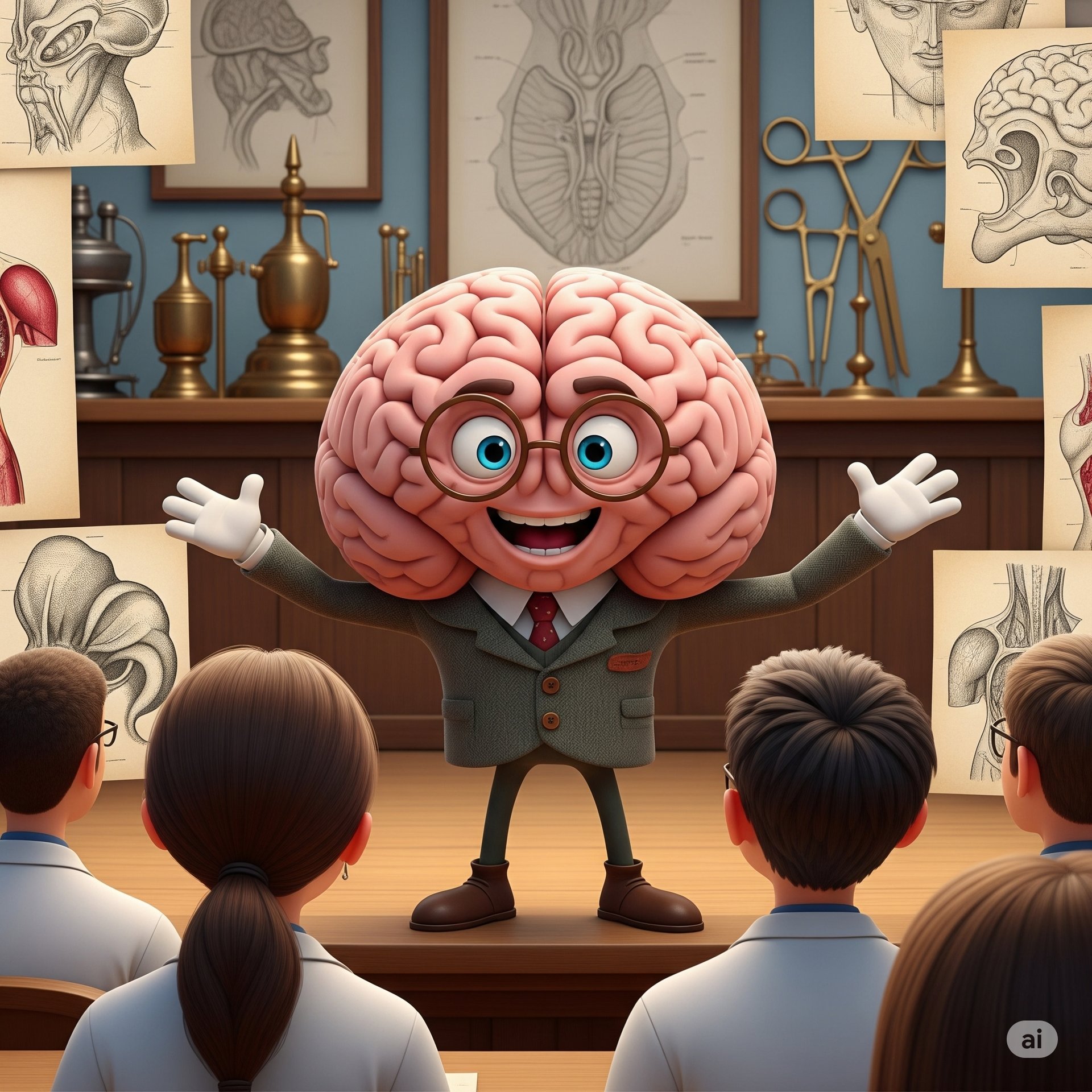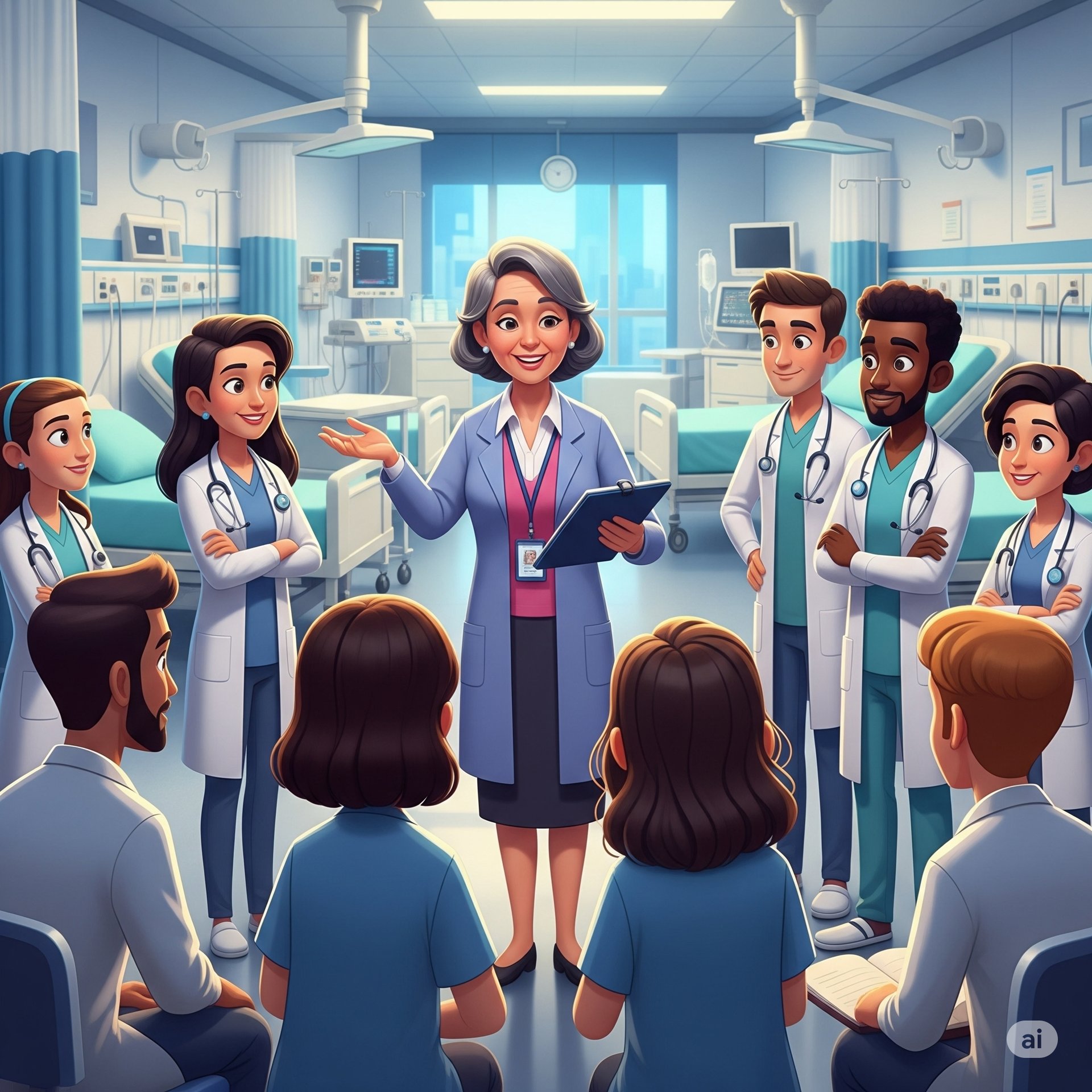THEMEDPRACTICALEXAM.COM

History Taking Format for Altered Mental Status (AMS)
1. Patient Details
Name, Age, Sex, Occupation, Address, Informant (and reliability)
2. Presenting Complaint
Nature of mental status change (confusion, drowsiness, agitation, unresponsiveness, behavioral changes)
Duration and progression
3. History of Presenting Illness
Onset:
Sudden or gradual?
Exact time and circumstances of onset (during sleep, after trauma, during illness, etc.)
Course and Progression:
Static, fluctuating, or progressively worsening?
Any periods of lucidity?
Characterization of AMS:
Disorientation (to time, place, person)
Inattention, memory loss, language disturbance
Hallucinations, delusions, agitation, or psychosis
Drowsiness, stupor, or coma
Associated Symptoms:
Fever, headache, vomiting
Seizures or abnormal movements
Focal neurological deficits (weakness, speech difficulty, vision changes)
Incontinence
Recent falls or trauma
Behavioral changes (aggression, withdrawal)
Precipitating/Relieving Factors:
Recent infection, medication change, substance use, dehydration, metabolic illness
Recent surgery or hospitalization
History of Similar Episodes:
Previous episodes of confusion, delirium, or coma
Recovery pattern and duration
4. Past Medical History
Chronic illnesses (diabetes, hypertension, chronic kidney/liver disease, heart disease, epilepsy, psychiatric illness, dementia)
Recent infections or hospitalizations
History of malignancy or immunosuppression
5. Drug History
All current and recent medications (including over-the-counter, herbal, and recreational drugs)
Recent changes in medication or missed doses
History of drug or alcohol abuse
6. Family History
Similar neurological or psychiatric illnesses
History of dementia, epilepsy, or metabolic disorders
7. Personal and Social History
Alcohol, tobacco, or illicit drug use
Occupational exposures (toxins, chemicals)
Living situation and support system
8. Systemic Enquiry
Fever, cough, urinary symptoms (infection)
Chest pain, palpitations, breathlessness (cardiac)
Polyuria, polydipsia (metabolic)
Rashes, joint pains (autoimmune/infective)
9. Special Notes
Source and reliability of history (often from relatives or caregivers)
Baseline mental status and functional abilities (compare to current state)
Recent travel, exposure to toxins, or sick contacts

Case History
Personal Details:
Mrs. Kamla Devi, 68-year-old female, homemaker
Informant: Daughter (reliable)
Presenting Complaint:
Sudden onset confusion and disorientation for 1 day
History of Presenting Illness:
Mrs. Kamla Devi was apparently well until 24 hours ago when her daughter noticed that she was confused, unable to recognize family members, and repeatedly asking the same questions. She was disoriented to time and place and had difficulty following simple commands. The confusion developed suddenly and has persisted since then.
Her daughter reports that Mrs. Devi has been less communicative and more drowsy than usual. She has not had fever, headache, vomiting, or seizures. There is no history of recent trauma, loss of consciousness, or abnormal body movements. She has not complained of chest pain, breathlessness, or palpitations. There is no history of recent travel, sick contacts, or urinary complaints.
She has not had similar episodes in the past. There is no history of recent medication changes, overdose, or missed doses.
Past Medical History:
Type 2 diabetes mellitus (10 years)
Hypertension (15 years)
Chronic kidney disease (stage 3)
No known psychiatric illness or dementia
Drug History:
Metformin, amlodipine, and calcium supplements
No recent changes or missed doses
No history of alcohol or illicit drug use
Family History:
No family history of dementia, epilepsy, or psychiatric illness
Personal and Social History:
Non-smoker, non-alcoholic
Lives with family, good support system
Systemic Enquiry:
No fever, cough, urinary symptoms, or gastrointestinal complaints
No rashes or joint pain
No recent weight loss or night sweats
Case Summary
A 68-year-old diabetic, hypertensive woman with chronic kidney disease presents with sudden-onset confusion and disorientation, without fever, trauma, infection, or prior psychiatric history. No recent medication changes or substance use.
Differential Diagnosis
Metabolic Encephalopathy (Uremic or Hepatic Encephalopathy)
Likely due to underlying chronic kidney disease and diabetes.
Delirium Secondary to Infection (e.g., Urinary Tract Infection, Pneumonia)
Common in elderly, even without overt signs of infection.
Electrolyte Imbalance (e.g., Hyponatremia, Hypercalcemia)
Possible due to chronic kidney disease and medication use.
Hypoglycemia or Hyperglycemic Hyperosmolar State
Both can present with acute confusion in diabetics.
Cerebrovascular Event (Stroke, especially in posterior circulation)
Can present as sudden confusion without focal deficits.
Drug-induced Encephalopathy
Less likely here due to stable medication regimen, but always to be considered.
Acute Exacerbation of Chronic Dementia
Unlikely as there is no prior history of cognitive decline.

1. What is altered mental status (AMS)?
Altered mental status is a broad term describing a change in mental function, including consciousness, awareness, cognition, behavior, or mood, due to illness, injury, or disorder affecting the brain126.
2. What are the main types of altered mental status?
The main types are delirium (acute, fluctuating disturbance of consciousness and cognition), dementia (chronic, progressive cognitive decline), and psychosis (disordered thought and perception)26.
3. What are common causes of acute AMS in the elderly?
Common causes include infections (e.g., UTI, pneumonia), metabolic disturbances (e.g., hypoglycemia, electrolyte imbalances, uremia), medications or toxins, stroke, and hypoxia2346.
4. How does delirium differ from dementia?
Delirium has an acute onset, fluctuating course, and is often reversible, while dementia is chronic, progressive, and usually irreversible268.
5. What are the typical symptoms of delirium?
Symptoms include inattention, disorientation, fluctuating consciousness, hallucinations, agitation, or drowsiness256.
6. What is the importance of the time course in AMS?
Acute onset suggests delirium or medical causes, while gradual progression over months suggests dementia268.
7. What metabolic disturbances can cause AMS?
Hypoglycemia, hyperglycemia, hyponatremia, hypercalcemia, hepatic or uremic encephalopathy, and hypoxia are common metabolic causes3456.
8. Why is infection a common cause of AMS in the elderly?
Older adults may present with AMS as the only sign of infection due to blunted immune responses; common infections include UTI and pneumonia26.
9. What drug-related factors can cause AMS?
Polypharmacy, drug toxicity, withdrawal, or side effects from medications such as sedatives, anticholinergics, or psychoactive drugs can lead to AMS36.
10. What is the initial approach to a patient with AMS?
Stabilize airway, breathing, and circulation; check glucose; obtain a focused history; perform a neurological assessment; and search for reversible causes46.
11. What investigations are typically ordered in AMS?
Blood glucose, electrolytes, renal and liver function tests, CBC, urinalysis, ECG, and neuroimaging if indicated46.
12. How can you distinguish between seizure and syncope as a cause of AMS?
Seizures may have tonic-clonic movements, tongue biting, incontinence, and post-ictal confusion, while syncope is usually brief with rapid recovery45.
13. What is the role of the informant in AMS history?
Informants provide crucial information about baseline mental status, timing, and progression, especially if the patient is unable to communicate12.
14. What are the red flag features in AMS that require urgent evaluation?
Sudden onset, focal neurological deficits, persistent unresponsiveness, fever, neck stiffness, or recent head trauma46.
15. What is the prognosis of AMS?
The prognosis depends on the underlying cause; many causes are reversible with prompt treatment, but chronic causes like dementia may progress despite intervention16.
16. What supportive care is important in AMS?
Supportive care includes ensuring patient safety, preventing complications (e.g., aspiration, pressure sores), and treating underlying causes14.
17. How does chronic kidney disease contribute to AMS?
CKD can cause uremic encephalopathy due to accumulation of toxins, electrolyte imbalances, and metabolic disturbances36.
18. Why is it important to review medications in AMS?
Many medications or their interactions can precipitate or worsen AMS, especially in the elderly36.
19. What is the difference between coma and delirium?
Coma is a state of unresponsiveness to voice, pain, or other stimuli, while delirium is a fluctuating disturbance of consciousness and cognition4.
20. Can AMS be prevented?
Some causes, such as metabolic disturbances and infections, can be prevented or minimized by good chronic disease management, medication review, and prompt treatment of acute illnesses1.